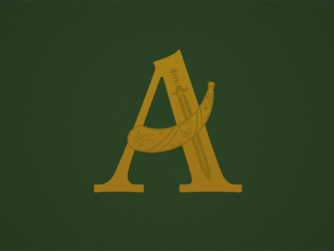Frodo awakens, wounded and bewildered, after the attack on Weathertop. Believing they’ve been led into a trap, Sam is certain (again) that Strider is not to be trusted, but the Ranger proves himself useful (again) by treating the wound with athelas, a healing herb of the Dúnedain. The wonder drug doesn’t work wonders, but it eases Frodo’s pain enough to resume the journey to Rivendell. We ponder the possibilities of troll architecture, celebrate a podcast milestone, and consider how Sauron is like a cell phone battery.
Recommended Reading:
Tolkien, J. R. R. (translator) Beowulf: A Translation and Commentary (Mariner Books, paperback)
Carpenter, Humphrey, ed. The Letters of J.R.R. Tolkien (Mariner Books, paperback)



Hi guys,
My question is two-fold. How did Aragorn know that a knife that strikes the Witch King would “perish,” and why does that then happen to the Morgul knife?
I’ve heard that it was the morning sunlight on the blade, or Aragorn’s touch (whether as the rightful king or just as a Man), but it cannot be a coincidence that the blade lay in the grass for hours and disappears as soon as someone touches it.
“‘This was the stroke of Frodo’s sword,’ he said. ‘The only hurt that it did to his enemy, I fear; for it is unharmed, but all blades perish that pierce that dreadful King.”
Directly after this, Aragorn picks up the notched Morgul knife which promptly perishes.
I know the dramatic reason is because Tolkien was thinking of this scene in Beowulf, but are there in-universe answers?
Hi Casey — It does seem like it can’t be a coincidence that the Morgul-knife disintegrates as soon as Aragorn touches it, but I don’t know of any in-universe reason why that’s the case. We’ll see what we can find on it. Thanks!